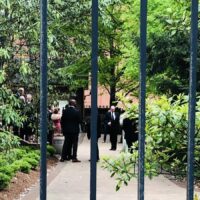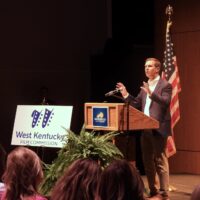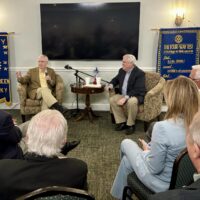While the headline in The Kentucky Lantern, “Kentuckians increasingly excluded from lawmaking process by fast-track maneuvers,” may have come as no surprise to the Capitol Bureau press corps, and others who closely monitor legislative developments, the League of Women Voters of Kentucky has verified that which the rest of us suspected.
In a quest to advance an agenda at odds with the welfare of their constituents, some members of the General Assembly have effectively undermined participatory democracy in the Commonwealth.
A League task force “reviewed provisions of the Kentucky Constitution, the House and Senate Rules, and the legislative record for all bills that became law during the seven 60-day legislative sessions: 1998, 2002, 2006, 2010, 2014, 2018, and 2022,” identifying the “procedures that make it increasingly difficult for citizens to be informed and active participants in legislation.”
The study exposes the single gravest threat to participatory democracy and legislative accountability. It is a threat that the Kentucky Open Government Coalition, and its directors, have condemned since the Coalition’s creation in 2019. Indeed, we are humbled by reference to the coalition’s work in the report.
It is threat — now substantiated by the League’s painstaking data analysis — that one lawmaker continues to dispute. His claim that the state Senate “operates in a transparent manner” is as insincere as his oleaginous grin.
Perhaps he alone has forgotten. Here, in the narrow context of furtive legislative assaults on Kentucky’s open government laws, are some reminders.
A 2018 article from the Courier Journal queries: “Our Senate leader must have a secret. Why else is he trying to hide his text messages?”
And few — other than the referenced Senate leader —have forgotten this 2021 tweet from former Lexington Herald Leader reporter Daniel Desrochers that launched a firestorm of controversy:
“Logged on to the House State Government committee late, but it seems like a shell bill is being used to run a bill that would limit open records requests only to residents of Kentucky” and, as a bonus, exclude the General Assembly and Legislative Research Commission from the open records law and judicial review of denial of access to their records.
As Desrochers’ colleague, John Cheves, later wrote:
“’This is how bad law flies under the radar,’ the Kentucky Open Government Coalition protested in a statement.
“’This is what citizens and voters hate about politics,’ said state Rep. Mary Lou Marzian, D-Louisville. “What are we hiding? What are we trying to keep from the public?”
Kentucky’s lawmakers have usurped the people’s sovereignty. They have decided “what is good for them to know,” and when, if ever, it is good for them to know — ultimately stripping them of their statutory right to “remain[ ] informed so they may retain control over the instruments that they have created.”
Simply put, the people of Kentucky are no longer the masters of their servant: the Kentucky General Assembly.
But Kentuckians need not impotently surrender.
In what may be the most constructive section of the study, the League identifies how we, as master of our legislative servants, can take back our authority.
Appendix A of the League of Women Voters’ study instructs citizens on how to engage in the legislative process by monitoring bills, contacting legislators, attending or watching meetings, and speaking in committee meetings.
The Frankfort State Journal offered additional suggestions for public participation in a past legislative session that provides critical links to legislative resources:
Demanding transparency and accountability from our legislative servants is the critical first step to restoring power to the voters — in whose hands it rightfully belongs.
“Secrecy is the freedom zealots dream of,” American journalist Bill Moyers reminds us, “no watchman to check the door, no accountant to check the books, no judge to check the law. The secret government has no constitution. The rules it follows are the rules it makes up.”
Now is the time to be the watchman. Now is the time for engagement. Now is the time for action.
Amye Bensenhaver spent 25 years as an assistant attorney general in Frankfort and is an expert on open records and open meetings. Now out of state government, she writes about these issues. Bensenhaver is a co-founder of the Kentucky Open Government Coalition with Jennifer P. Brown, who is the editor of Hoptown Chronicle.






